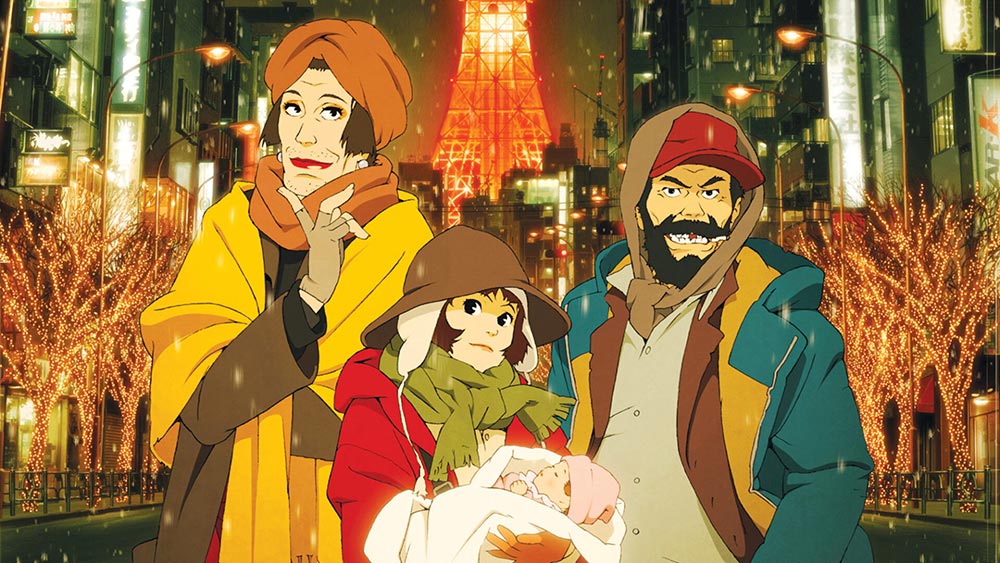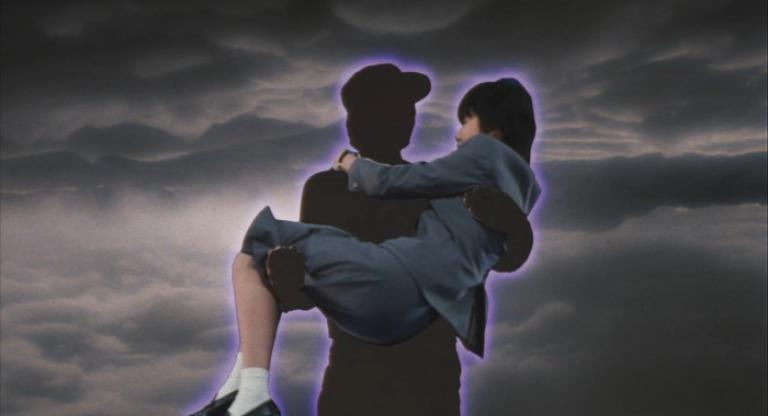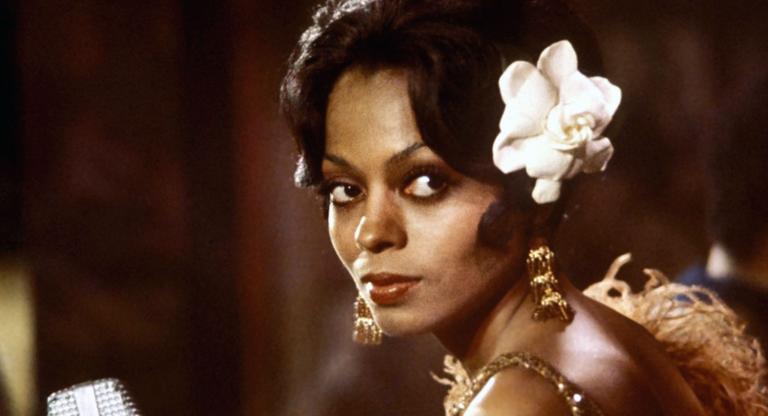The late, great animator Satoshi Kon’s Tokyo Godfathers (2003) enthusiastically warps many conventions of the Christmas film even as it sincerely embodies the genre’s hoariest clichés about renewal, redemption, and goodwill toward men. The plot follows a trio of homeless Tokyoites—teen runaway Miyuki, doggedly prideful trans woman Hana, and fallen alcoholic Gin—who discover a baby in the trash and spend the night trying to return her to her mother.
While it has none of the reality-bending elements of Kon’s more recognized works—Perfect Blue (1997), Millennium Actress (2001), or Paranoia Agent (2004)—Kon acknowledged that the story is “strange.” The trio’s Yuletide picaresque, which takes them through a yakuza wedding, nightclubs, hostage situations, and thwarted suicide attempts, is rife with unlikely coincidences and character connections. It could legitimately be categorized as magical realism, especially given the climactic, life-saving miracle.
This quality could also be attributed to Kon’s co-writer, Keiko Nobumoto, known for writing many of the best episodes of Cowboy Bebop. That show is often remembered for its animation, music, and incredibly cool vibe, but less often for how it emphasizes that its characters are fuck-ups and outcasts, or for how much the stories of each episode subject them to nigh-on absurdist circumstance. Applying such a sensibility to a tale about the homeless suits Nobumoto perfectly; fate has already torn these people down, and one gets the sense that the randomness of their universe could just as easily have killed them as brought them together or delivered them somewhere better. Indeed, the whims of chance claim the lives of an awful lot of side characters in this lighthearted Christmas story.
Nobumoto’s writing is a good match for Kon’s emphasis on realistic character design and exacting attention to small gestures. The Tokyo winter night looks cold enough to cut bare skin. Characters snort and shift as they stand, their eyes twitch, they trip a little as they run. There’s so much craft put into their pratfalls and increasingly complicated chases as to recall the physical comedy geniuses of the Silent Era. The film’s sense of humor is so brash and its incidents so outlandish that one could almost forget at times how harrowingly it captures the precarity of life on the street. Kon was inspired by Ford’s 3 Godfathers (1948; itself one of many adaptations of a dime novel by Peter B. Kyne), and it turns out that amidst urban “civilization” one can find just as much societal callousness as in the fabled “Old West.”
Kon and Nobumoto both passed away from cancer—he more than a decade ago, she just last year. Seeing the warmth and compassion they have for their characters in Tokyo Godfathers makes their absences more acutely felt. Animation has missed this kind of dark but loving humanism.
Tokyo Godfathers screens through December 14 at Alamo Drafthouse locations in Lower Manhattan and Staten Island.



